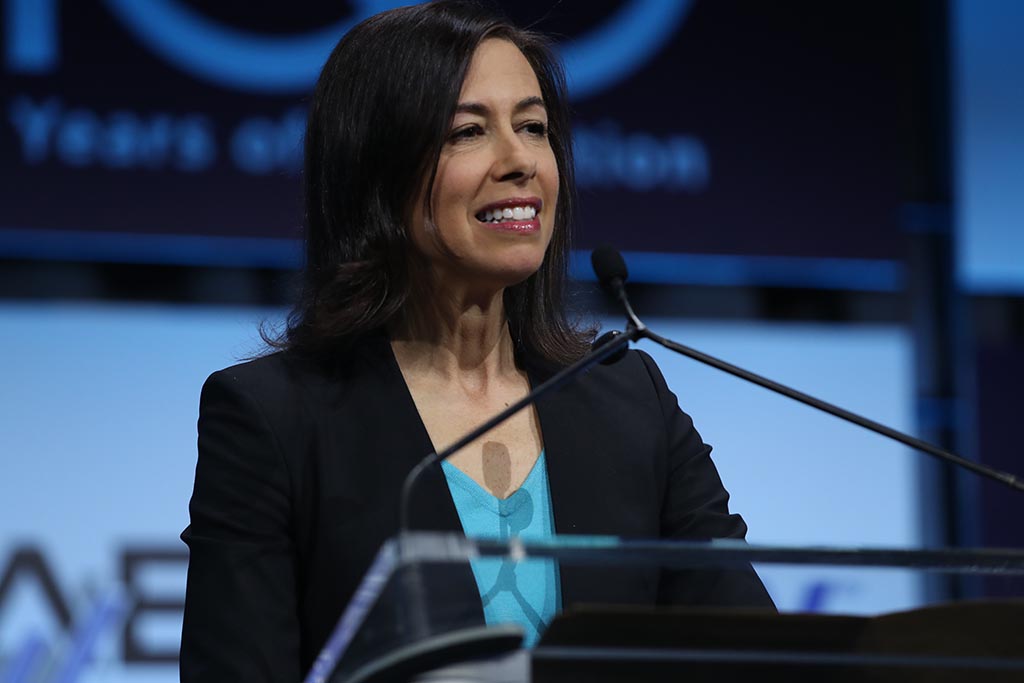
Back in January, the National Association of Broadcasters said that without some action by the FCC, including sunsetting the requirement to broadcast in both the current and next-generation transmission formats, that next-generation format — the ATSC 3.0 transmission standard — is “in peril,” and with it broadcasters’ future.
The Federal Communications Commission appears to have listened.
At NAB Show in Las Vegas, FCC Chairwoman Jessica Rosenworcel announced a partnership, the Future of Television initiative, led by NAB and with the goal of a smooth transition to the new standard, also called NextGen TV. ATSC 3.0 will allow for 4K pictures, video on demand, advanced emergency alerts, targeted advertising and more, but broadcasters can also combine retransmission-consent negotiations for new ATSC 3.0 and existing 1.0 signals, which cable operators had opposed.
But since the standard is not backward-compatible with new sets, it will require viewers to either buy those sets for downconverters to the current ATSC 1.0 standard viewable on their current hardware. That’s one of the challenges that needs addressing.
Also Read: NAB Says ATSC Will Reinvent Industry
“Today, we are announcing a public-private initiative, led by the National Association of Broadcasters, to help us work through outstanding challenges faced by industry and consumers,” Rosenworcel said in a speech to the assembled broadcasters.
NAB will set up three stakeholder working groups to deal with “existing hardware, the technical aspects of executing the transition, and other regulatory issues implicated by the evolution in broadcasting standards,“ respectively.
“We commend the chairwoman, her staff and the Media Bureau for the hard work they have put into making this collaborative effort a reality,” NAB president and CEO Curtis LeGeyt. “NAB and broadcasters will continue to work tirelessly to pave the way for this exciting new technology, which will revolutionize the way viewers consume broadcast content and enable local stations to better serve their communities.”
In meetings with top FCC staffers back in January, Nexstar Media Group chairman and CEO Perry Sook and other top broadcast group executives told Rosenworcel that a “stalled transition” — it has been seven years since broadcasters petitioned the FCC to allow the move — represented an existential threat to free, over-the-air broadcasting.
Now, the two groups will be working together to ensure that the promise, rather than the threat, of a transition will be in the forefront.







